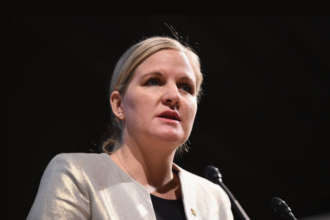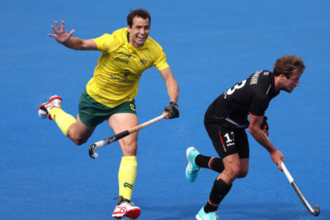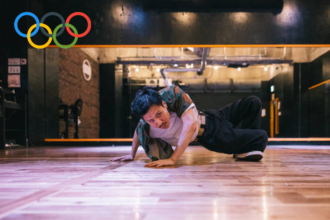The ECHR’s decision in the Caster Semenya case has sparked a lot of talk in both sports and legal circles. Caster Semenya, a South African sprinter who has won the women’s 800 meters at the Olympics twice, is at the core of the case. Semenya has a disorder called Differences of Sexual Development (DSD), which means that her body makes more testosterone than the average woman.
The European Court of Human Rights (ECHR) did not directly decide on World Athletics’ controversial restrictions on who can compete based on their sex. Instead, it looked at whether Semenya’s legal case in Switzerland was fair when she challenged those laws. The ruling doesn’t change any current rules, but it is a big win for her in her ongoing legal battle and could change how similar cases are handled in the future.
What did the European Court of Human Rights say?
The ECHR said in July 2023 that the Swiss Supreme Court didn’t do its job when it turned down Semenya’s appeal in 2020. The ECHR said that Switzerland had not made sure that Article 6 of the European Convention on Human Rights guaranteed a fair trial. The ruling said that the Swiss court didn’t look closely enough at Semenya’s claims or think about how her case might affect human rights in general.
The court said that the Swiss decision “did not meet the requirement of particular rigour,” which means that it did not meet the high standards that are needed when dealing with complicated human rights disputes. Semenya wins a little bit with this aspect of the Caster Semenya ECHR verdict. But her claims under Articles 8, 13, and 14, which safeguard the right to privacy, the right to an appropriate remedy, and the right to be free from discrimination, were thrown out because of jurisdictional issues.
The ruling doesn’t immediately make World Athletics amend its rules, but it sets a solid legal precedent that protects athletes’ rights in similar cases. Read another article on the Olympic breakdancer
What are DSD rules? Let’s look at the controversy.
DSD is a term for a group of conditions in which a person’s chromosomal, gonadal, or anatomical sex traits don’t meet the usual classifications of male or female. Caster Semenya has 46 XY DSD, especially 5-alpha-reductase deficiency. This means that she had XY chromosomes but may have looked feminine at birth.
In 2019, World Athletics adopted rules that say that athletes with specific DSDs must lower their natural testosterone levels with medicine if they want to compete in women’s races from 400 meters to one mile. In 2023, these regulations were changed to cover all women’s track and field events.
People who support the rules say they are necessary for fair competition. World Athletics says that scientific studies show that individuals with higher testosterone levels may be stronger, faster, and more durable than other athletes. Some people, on the other hand, feel that the restrictions are unfair, intrusive, and make athletes choose between their health and their job.
The Caster Semenya ECHR verdict shows how hard it is to find a balance between science, justice, and human rights in professional sports.
What effect has this had on Semenya’s job?
The DSD rules made it impossible for Semenya to compete in her best sport without getting medical treatment. She won Olympic gold medals in 2012 and 2016, as well as three world championships. She was known for being the best at the 800m.
Semenya said she wouldn’t use hormone-suppressing medicines if the rules went into force because they would hurt her body and violate her rights. Because of this, she couldn’t defend her title in the Tokyo 2020 Olympics and hasn’t competed at a world level since 2019.
Semenya has said in interviews that her fight is no longer about winning gold; it’s about getting justice. “I was born this way,” she stated in 2023. “I am a woman, and no one is going to take that away from me.”
The ECHR verdict on Caster Semenya confirms her right to question the process that kept her out of the competition, even though it doesn’t let her compete again yet.
What does the ruling mean for the bigger picture?
This scenario could have effects that persist longer than Semenya’s. The verdict makes it clear that national courts must carefully look at instances that involve human rights. It also raises moral questions about making athletes get medical care to meet eligibility rules.
The International Olympic Committee (IOC) and other international sports organizations are currently reviewing their rules. There are reports that the IOC is thinking about using cheek-swab DNA tests to find the SRY gene, which is an indicator that a person is developing as a male. If these restrictions were put in place, they could make it even harder for athletes with conditions like Semenya’s to compete in women’s categories.
People who care about human rights say that this trend is putting sports in a hazardous place, where biology is used to keep people out instead of celebrating them.
The Caster Semenya ECHR decision shows that sporting organizations need to rethink what they mean by fairness and inclusivity.
What Might Happen Next?
The ECHR decision doesn’t change the rules of World Athletics, but it does mean that Semenya’s case could be heard again in Swiss courts. Lawyers think this procedure could take a long time and might not result in a quick change to the rules. But now the door is open for a fresh legal challenge that might have bigger effects on how sports are run.
In the interim, Semenya has become a strong supporter of athletes’ rights. She is also helping young athletes and utilizing her position to urge for more fairness, respect, and empathy in sports. Her case is still making people around the world talk and take action.
Conclusion: A Turning Point for the Rights of Athletes
The Caster Semenya ECHR decision is a big deal for the relationship between law, sports, and human rights. Even though it doesn’t let Semenya compete again, it shows how important it is for athletes to have due process, fair treatment, and ethical policy-making.
Semenya’s case is a strong reminder that regulations must serve the people they govern as sports organizations deal with difficult issues of biology, fairness, and inclusiveness. Athletes are more than simply competitors; they are people with rights, dignity, and the ability to make a difference.
This decision should motivate leaders in sports, law, and science to work together to find solutions that protect both fair play and basic human rights.








